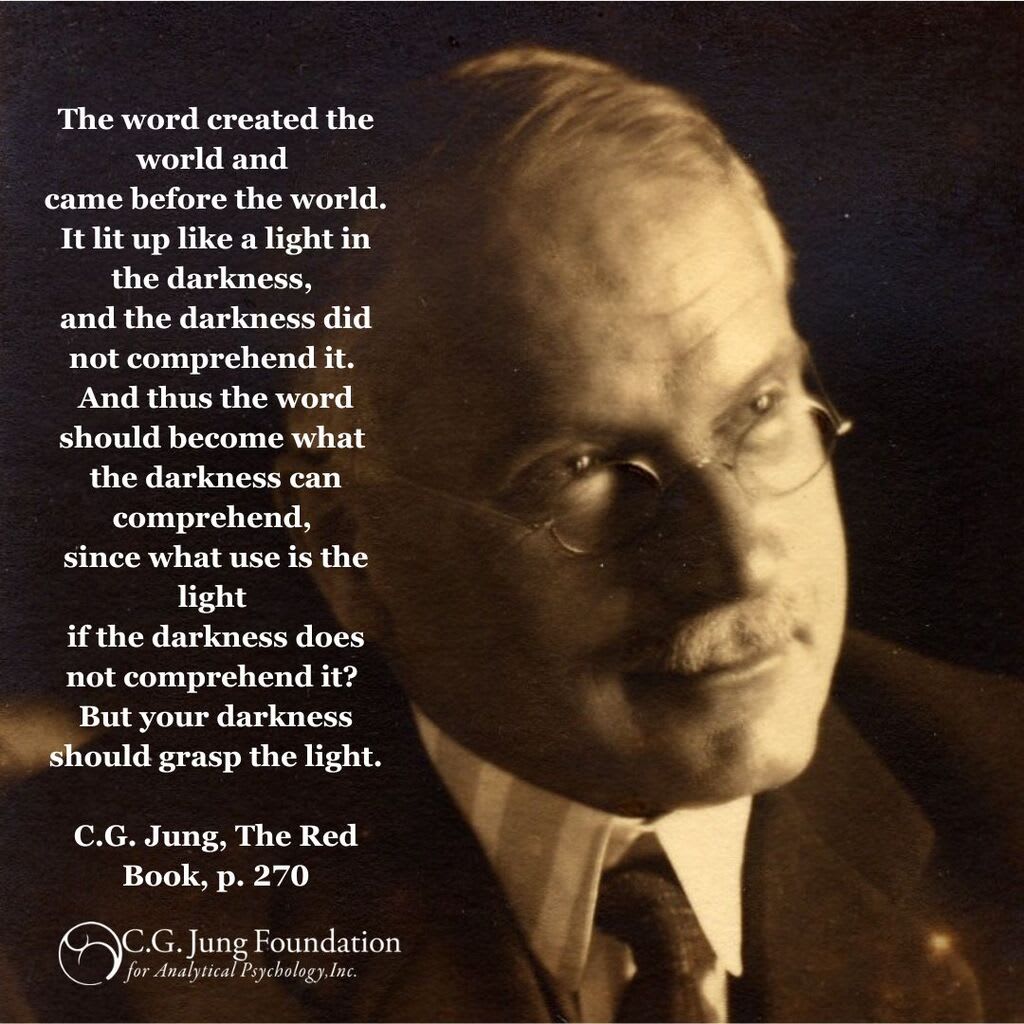
他の人が私たちの行動を理解できないとしたら、どうなるでしょうか? 彼らが理解していることだけをしなければならないという彼らの要求は、私たちに命令しようとする試みです。 これが彼らの目に「非社会的」または「不合理」と映るとしても、それはそれで構いません。 ほとんどの場合、彼らは私たちの自由と、私たちらしくある勇気に憤慨しています。
私たちの行為が彼らを傷つけたり侵害したりしない限り、私たちは誰にも説明や責任を負う義務はありません。 この「説明」の必要性によって、どれほど多くの人生が台無しになったことか。これは通常、説明が「理解される」、つまり承認されることを意味します。
あなたの行為を判断し、あなたの行為からあなたの本当の意図を判断しましょう。しかし、自由な人は自分自身、つまり自分の理性と良心に対してのみ説明する義務があること、そして正当な説明を求めることができる少数の人々に対してのみ説明する義務があることを知ってください。
~エーリッヒ・フロム [本: 存在の芸術 https://amzn.to/3M6Djbq ]
画像 | エーリッヒ・フロム
私たちの行為が彼らを傷つけたり侵害したりしない限り、私たちは誰にも説明や責任を負う義務はありません。 この「説明」の必要性によって、どれほど多くの人生が台無しになったことか。これは通常、説明が「理解される」、つまり承認されることを意味します。
あなたの行為を判断し、あなたの行為からあなたの本当の意図を判断しましょう。しかし、自由な人は自分自身、つまり自分の理性と良心に対してのみ説明する義務があること、そして正当な説明を求めることができる少数の人々に対してのみ説明する義務があることを知ってください。
~エーリッヒ・フロム [本: 存在の芸術 https://amzn.to/3M6Djbq ]
画像 | エーリッヒ・フロム
魂の助産師たち
If other people do not understand our behaviour—so what? Their request that we must only do what they understand is an attempt to dictate to us. If this is being "asocial" or "irrational" in their eyes, so be it. Mostly they resent our freedom and our courage to be ourselves.
We owe nobody an explanation or an accounting, as long as our acts do not hurt or infringe on them. How many lives have been ruined by this need to "explain," which usually implies that the explanation be "understood," i.e. approved.
Let your deeds be judged, and from your deeds, your real intentions, but know that a free person owes an explanation only to himself—to his reason and his conscience— and to the few who may have a justified claim for explanation.
~Erich Fromm [Book: The Art of Being https://amzn.to/3M6Djbq ]
image | Erich Fromm
If other people do not understand our behaviour—so what? Their request that we must only do what they understand is an attempt to dictate to us. If this is being "asocial" or "irrational" in their eyes, so be it. Mostly they resent our freedom and our courage to be ourselves.
We owe nobody an explanation or an accounting, as long as our acts do not hurt or infringe on them. How many lives have been ruined by this need to "explain," which usually implies that the explanation be "understood," i.e. approved.
Let your deeds be judged, and from your deeds, your real intentions, but know that a free person owes an explanation only to himself—to his reason and his conscience— and to the few who may have a justified claim for explanation.
~Erich Fromm [Book: The Art of Being https://amzn.to/3M6Djbq ]
image | Erich Fromm
Midwives of the Soul
A
「ほとんどの人は、外部の力によってあからさまに強制されない限り、自分の決定は自分のものであり、何かを望むなら、それを望むのは自分であると信じています。 しかし、これは私たちが自分自身について抱いている大きな幻想の 1 つです。 私たちの決定の多くは実際には私たち自身のものではなく、外部から私たちに提案されています。 私たちは、決断を下したのは自分たちであると自分自身に納得させることに成功しましたが、実際には、孤立への恐怖や、自分たちの生命、自由、快適さに対するより直接的な脅威に駆られて、他人の期待に応えてきたのです。」
~エーリッヒ・フロム『自由からの逃走』
A
「私たちの意識的な動機、アイデア、信念は、誤った情報、偏見、不合理な情熱、合理化、偏見が混ざり合ったものであり、その中に真実の一部分が飛び交い、偽りではあるがその混合物全体が本物で真実であるという安心感を与えます。 思考プロセスは、この幻想の溜まり全体をもっともらしさの法則に従って整理しようとします。 この意識レベルは現実を反映していると考えられています。 それは私たちが生活を整理するために使用する地図です。」
~エーリッヒ・フロム『持つべきか、あるべきか?』 精神の性質
A
「ほとんどの人は、自分が順応する必要性さえ認識していません。 彼らは、自分の考えや傾向に従い、自分は個人主義者であり、自分の考えの結果として自分の意見に到達した、そしてたまたま自分の考えが大多数の考えと同じであるという幻想の下で生きています。 。 (p.11)』
~エーリッヒ・フロム『愛するという芸術』
A
「...個人は自分自身であることをやめます。彼は文化的パターンによって与えられた種類の性格を完全に採用します。そしてそのため、彼は他のすべての人とまったく同じになり、彼らが彼に期待するとおりになります...自分自身を放棄する人 「個人としての自己を獲得し、周囲の何百万もの他の自動機械と同じ自動機械になれば、もう孤独や不安を感じる必要はありません。しかし、彼が支払う代償は高く、それは自己の喪失です。」
〜エーリッヒ・フロム。
A
「完全に覚醒した状態。 この状態では、人は生き残るために、または情熱的な目標を満たすために意識する必要があることを認識しているだけでなく、自分自身と自分の周りの世界(人々と自然)についても認識しています。 不透明ではなく、表面とその根がはっきりと見えます。 世界は完全に現実になります。 あらゆる細部とその構成と構造の細部が意味のある単位になります。 あたかも私たちの目の前にずっと存在していたベールが、それが存在していることに気づかずに、突然剥がれ落ちてしまったような気がします。」
〜エーリッヒ・フロム『存在の芸術』
「ほとんどの人は、外部の力によってあからさまに強制されない限り、自分の決定は自分のものであり、何かを望むなら、それを望むのは自分であると信じています。 しかし、これは私たちが自分自身について抱いている大きな幻想の 1 つです。 私たちの決定の多くは実際には私たち自身のものではなく、外部から私たちに提案されています。 私たちは、決断を下したのは自分たちであると自分自身に納得させることに成功しましたが、実際には、孤立への恐怖や、自分たちの生命、自由、快適さに対するより直接的な脅威に駆られて、他人の期待に応えてきたのです。」
~エーリッヒ・フロム『自由からの逃走』
A
「私たちの意識的な動機、アイデア、信念は、誤った情報、偏見、不合理な情熱、合理化、偏見が混ざり合ったものであり、その中に真実の一部分が飛び交い、偽りではあるがその混合物全体が本物で真実であるという安心感を与えます。 思考プロセスは、この幻想の溜まり全体をもっともらしさの法則に従って整理しようとします。 この意識レベルは現実を反映していると考えられています。 それは私たちが生活を整理するために使用する地図です。」
~エーリッヒ・フロム『持つべきか、あるべきか?』 精神の性質
A
「ほとんどの人は、自分が順応する必要性さえ認識していません。 彼らは、自分の考えや傾向に従い、自分は個人主義者であり、自分の考えの結果として自分の意見に到達した、そしてたまたま自分の考えが大多数の考えと同じであるという幻想の下で生きています。 。 (p.11)』
~エーリッヒ・フロム『愛するという芸術』
A
「...個人は自分自身であることをやめます。彼は文化的パターンによって与えられた種類の性格を完全に採用します。そしてそのため、彼は他のすべての人とまったく同じになり、彼らが彼に期待するとおりになります...自分自身を放棄する人 「個人としての自己を獲得し、周囲の何百万もの他の自動機械と同じ自動機械になれば、もう孤独や不安を感じる必要はありません。しかし、彼が支払う代償は高く、それは自己の喪失です。」
〜エーリッヒ・フロム。
A
「完全に覚醒した状態。 この状態では、人は生き残るために、または情熱的な目標を満たすために意識する必要があることを認識しているだけでなく、自分自身と自分の周りの世界(人々と自然)についても認識しています。 不透明ではなく、表面とその根がはっきりと見えます。 世界は完全に現実になります。 あらゆる細部とその構成と構造の細部が意味のある単位になります。 あたかも私たちの目の前にずっと存在していたベールが、それが存在していることに気づかずに、突然剥がれ落ちてしまったような気がします。」
〜エーリッヒ・フロム『存在の芸術』
「個人が自発的な活動によって自分自身を実現し、それによって自分自身を世界と結びつけるならば、彼は孤立した原子ではなくなります。 彼と世界は構造化された 1 つの全体の一部になります。 彼には自分の正当な立場があり、それによって自分自身と人生の意味についての疑念は消え去ります。 この疑念は、彼の孤立感と生活の妨げから生じたものでした。 強制的にでも自動的にでもなく自発的に生きることができたとき、疑いは消える。 彼は自分が活動的で創造的な人間であることを認識しており、人生の意味はただ 1 つしかない、それは生きるという行為そのものであることを認識しています。」
~エーリッヒ・フロム『自由からの逃走』
A
“Most people are convinced that as long as they are not overtly forced to do something by an outside power, their decisions are theirs, and that if they want something, it is they who want it. But this is one of the great illusions we have about ourselves. A great number of our decisions are not really our own but are suggested to us from the outside; we have succeeded in persuading ourselves that it is we who have made the decision, whereas we have actually conformed with expectations of others, driven by the fear of isolation and by more direct threats to our life, freedom, and comfort.”
~Erich Fromm, Escape from Freedom.
A
“Our conscious motivations, ideas, and beliefs are a blend of false information, biases, irrational passions, rationalizations, prejudices, in which morsels of truth swim around and give the reassurance albeit false, that the whole mixture is real and true. The thinking processes attempt to organize this whole cesspool of illusions according to the laws of plausibility. This level of consciousness is supposed to reflect reality; it is the map we use for organizing our life.”
~Erich Fromm, To Have or to Be? The Nature of the Psyche
A
“Most people are not even aware of their need to conform. They live under the illusion that they follow their own ideas and inclinations, that they are individualists, that they have arrived at their opinion as the result of their own thinking - and that it just happens that their ideas are the same as this of the majority. (p.11)”
~Erich Fromm, The Art of Loving
A
"...the individual ceases to be himself; he adopts entirely the kind of personality offered to him by cultural patterns; and he therefore becomes exactly as all others are and as they expect him to be...The person who gives up his individual self and becomes an automaton, identical with millions of other automatons around him, need not feel alone and anxious any more. But the price he pays, however, is high; it is the loss of his self."
~Erich Fromm.
A
“A state of total awakeness. In this state one is not only aware of that which one needs to be aware of in order to survive or to satisfy passionate goals, one is aware of oneself and of the world (people and nature) around one. One sees, not opaquely but clearly, the surface together with its roots. The world becomes fully real; every detail and the details in their configuration and structure become a meaningful unit. It feels as if a veil that had been in front of our eyes permanently—without our recognizing it was there—and had suddenly dropped away.”
~Erich Fromm, The Art of Being.
“If the individual realizes his self by spontaneous activity and thus relates himself to the world, he ceases to be an isolated atom; he and the world become part of one structuralized whole; he has his rightful place, and thereby his doubt concerning himself and the meaning of life disappears. This doubt sprang from his separateness and from the thwarting of life; when he can live, neither compulsively nor automatically but spontaneously, the doubt disappears. He is aware of himself as an active and creative individual and recognizes that there is only one meaning of life: the act of living itself.”
~Erich Fromm, Escape from Freedom.
A
「おそらく、美徳を装った嫉妬や憎しみを引き起こす道徳的怒り以上に破壊的な感情を含んだ現象はないでしょう。」
〜エーリッヒ・フロム
A
「人間は破壊、憎しみ、妬み、復讐などの不合理な情熱を抑圧します。 彼は権力、お金、主権国家、国家を崇拝します。 彼は、人類の偉大な精神的指導者、仏陀、預言者、ソクラテス、イエス、ムハンマドの教えに口先だけのサービスを送りながら、これらの教えを迷信と偶像崇拝のジャングルに変えました。 人類は、知的・技術的な過剰成熟と感情的後進性との間の矛盾によって自らを滅ぼすことからどうやって救われるのでしょうか?」
〜エーリッヒ・フロム
A
私たちは、言論の自由が古い制約との戦いにおいて重要な勝利を構成しているにもかかわらず、現代人は、「彼」が考え、発言していることの多くが、他の誰もが考え、発言していることと同じであるという立場にあることを忘れています。 彼はもともと、つまり自分自身で考える能力を獲得していないということだけで、彼の思考の表現を誰も妨げることはできないという彼の主張に意味を与えます。
〜エーリッヒ・フロム。
A
何百万もの人々が同じ形態の精神病理を共有しているからといって、これらの人々が正気であるとは限りません。 〜エーリッヒ・フロム。
A
「完全に疎外されておらず、敏感でありながら感じることができ、尊厳の感覚を失わず、まだ「売り物」にされておらず、他人の苦しみにまだ苦しむことができ、まだ疎外されていない人。 持つという存在様式を完全に獲得した人、つまり、物にならずに人であり続けた人は、現代社会において孤独、無力、孤立を感じずにはいられません。 彼は正気ではないにしても、自分自身と自分の信念を疑わずにはいられません。 「普通の」同時代人の生活には存在しない喜びや明晰さの瞬間を経験できるにもかかわらず、彼は苦しみを避けられない。 病人が病んだ社会に適応しようとする従来の神経症ではなく、狂気の社会に生きる正気の人の状況から生じる神経症に苦しむことも少なくない。 彼の分析がさらに進む過程、つまりより独立性と生産性が高まる過程で、彼の神経症の症状は自然に治っていきます。 ~エーリッヒ・フロム、「存在の芸術」。
A
「現代社会で見られる疎外は、ほぼ完全なものです…人間は、これまで存在しなかった人工物の世界を創造しました。 彼は、自分が構築した技術的なマシンを管理するための複雑なソーシャル マシンを構築しました。 彼が解き放つ力がより強力で巨大であればあるほど、彼は人間として自分が無力であると感じます。 彼は自分の創造物に所有されており、自分自身の所有権を失っています。」
〜エーリッヒ・フロム。
A
"Perhaps there is no phenomenon that contains a greater destructive feeling than moral outrage, which leads envy or hatred to act disguised as virtue."
~Erich Fromm
A
“Man represses the irrational passions of destructiveness, hate, envy, revenge; he worships power, money, the sovereign state, the nation; while he pays lip service to the teachings of the great spiritual leaders of the human race, those of Buddha, the prophets, Socrates, Jesus, Mohammed—he has transformed these teachings into a jungle of superstition and idol-worship. How can mankind save itself from destroying itself by this discrepancy between intellectual-technical overmaturity and emotional backwardness?”
~Erich Fromm
A
We forget that, although freedom of speech constitutes an important victory in the battle against old restraints, modern man is in a position where much of what "he" thinks and says are the things that everybody else thinks and says; that he has not acquired the ability to think originally - that is, for himself - which alone gives meaning to his claim that nobody can interfere with the expression of his thoughts.
~Erich Fromm.
A
That millions of people share the same forms of mental pathology does not make these people sane. ~Erich Fromm.
A
“A person who has not been completely alienated, who has remained sensitive and able to feel, who has not lost the sense of dignity, who is not yet "for sale", who can still suffer over the suffering of others, who has not acquired fully the having mode of existence - briefly, a person who has remained a person and not become a thing - cannot help feeling lonely, powerless, isolated in present-day society. He cannot help doubting himself and his own convictions, if not his sanity. He cannot help suffering, even though he can experience moments of joy and clarity that are absent in the life of his "normal" contemporaries. Not rarely will he suffer from neurosis that results from the situation of a sane man living in an insane society, rather than that of the more conventional neurosis of a sick man trying to adapt himself to a sick society. In the process of going further in his analysis, i.e. of growing to greater independence and productivity, his neurotic symptoms will cure themselves. ” ~Erich Fromm, - The Art Of Being.
A
“Alienation as we find it in modern society is almost total… Man has created a world of man-made things as it never existed before. He has constructed a complicated social machine to administer the technical machine he built. The more powerful and gigantic the forces are which he unleashes, the more powerless he feels himself as a human being. He is owned by his creations, and has lost ownership of himself.”
~Erich Fromm.
「おそらく、美徳を装った嫉妬や憎しみを引き起こす道徳的怒り以上に破壊的な感情を含んだ現象はないでしょう。」
〜エーリッヒ・フロム
A
「人間は破壊、憎しみ、妬み、復讐などの不合理な情熱を抑圧します。 彼は権力、お金、主権国家、国家を崇拝します。 彼は、人類の偉大な精神的指導者、仏陀、預言者、ソクラテス、イエス、ムハンマドの教えに口先だけのサービスを送りながら、これらの教えを迷信と偶像崇拝のジャングルに変えました。 人類は、知的・技術的な過剰成熟と感情的後進性との間の矛盾によって自らを滅ぼすことからどうやって救われるのでしょうか?」
〜エーリッヒ・フロム
A
私たちは、言論の自由が古い制約との戦いにおいて重要な勝利を構成しているにもかかわらず、現代人は、「彼」が考え、発言していることの多くが、他の誰もが考え、発言していることと同じであるという立場にあることを忘れています。 彼はもともと、つまり自分自身で考える能力を獲得していないということだけで、彼の思考の表現を誰も妨げることはできないという彼の主張に意味を与えます。
〜エーリッヒ・フロム。
A
何百万もの人々が同じ形態の精神病理を共有しているからといって、これらの人々が正気であるとは限りません。 〜エーリッヒ・フロム。
A
「完全に疎外されておらず、敏感でありながら感じることができ、尊厳の感覚を失わず、まだ「売り物」にされておらず、他人の苦しみにまだ苦しむことができ、まだ疎外されていない人。 持つという存在様式を完全に獲得した人、つまり、物にならずに人であり続けた人は、現代社会において孤独、無力、孤立を感じずにはいられません。 彼は正気ではないにしても、自分自身と自分の信念を疑わずにはいられません。 「普通の」同時代人の生活には存在しない喜びや明晰さの瞬間を経験できるにもかかわらず、彼は苦しみを避けられない。 病人が病んだ社会に適応しようとする従来の神経症ではなく、狂気の社会に生きる正気の人の状況から生じる神経症に苦しむことも少なくない。 彼の分析がさらに進む過程、つまりより独立性と生産性が高まる過程で、彼の神経症の症状は自然に治っていきます。 ~エーリッヒ・フロム、「存在の芸術」。
A
「現代社会で見られる疎外は、ほぼ完全なものです…人間は、これまで存在しなかった人工物の世界を創造しました。 彼は、自分が構築した技術的なマシンを管理するための複雑なソーシャル マシンを構築しました。 彼が解き放つ力がより強力で巨大であればあるほど、彼は人間として自分が無力であると感じます。 彼は自分の創造物に所有されており、自分自身の所有権を失っています。」
〜エーリッヒ・フロム。
A
"Perhaps there is no phenomenon that contains a greater destructive feeling than moral outrage, which leads envy or hatred to act disguised as virtue."
~Erich Fromm
A
“Man represses the irrational passions of destructiveness, hate, envy, revenge; he worships power, money, the sovereign state, the nation; while he pays lip service to the teachings of the great spiritual leaders of the human race, those of Buddha, the prophets, Socrates, Jesus, Mohammed—he has transformed these teachings into a jungle of superstition and idol-worship. How can mankind save itself from destroying itself by this discrepancy between intellectual-technical overmaturity and emotional backwardness?”
~Erich Fromm
A
We forget that, although freedom of speech constitutes an important victory in the battle against old restraints, modern man is in a position where much of what "he" thinks and says are the things that everybody else thinks and says; that he has not acquired the ability to think originally - that is, for himself - which alone gives meaning to his claim that nobody can interfere with the expression of his thoughts.
~Erich Fromm.
A
That millions of people share the same forms of mental pathology does not make these people sane. ~Erich Fromm.
A
“A person who has not been completely alienated, who has remained sensitive and able to feel, who has not lost the sense of dignity, who is not yet "for sale", who can still suffer over the suffering of others, who has not acquired fully the having mode of existence - briefly, a person who has remained a person and not become a thing - cannot help feeling lonely, powerless, isolated in present-day society. He cannot help doubting himself and his own convictions, if not his sanity. He cannot help suffering, even though he can experience moments of joy and clarity that are absent in the life of his "normal" contemporaries. Not rarely will he suffer from neurosis that results from the situation of a sane man living in an insane society, rather than that of the more conventional neurosis of a sick man trying to adapt himself to a sick society. In the process of going further in his analysis, i.e. of growing to greater independence and productivity, his neurotic symptoms will cure themselves. ” ~Erich Fromm, - The Art Of Being.
A
“Alienation as we find it in modern society is almost total… Man has created a world of man-made things as it never existed before. He has constructed a complicated social machine to administer the technical machine he built. The more powerful and gigantic the forces are which he unleashes, the more powerless he feels himself as a human being. He is owned by his creations, and has lost ownership of himself.”
~Erich Fromm.

言葉は世界を創造し、世界の前に現れました。 それは暗闇の中の光のように輝きましたが、暗闇はそれを理解できませんでした。
ナンセンスを話すことが唯一の特権です。ードストエフスキー
「心理的成熟を達成することは個人の課題であるため、人間の個性が広範な同調性によって脅かされている今日、ますます困難になっています。」
― CG ユング、人間とその象徴
“The achievement of psychological maturity is an individual task-and so is increasingly difficult today when man's individuality is threatened by widespread conformity.”
― C.G. Jung, Man and His Symbols
― CG ユング、人間とその象徴
“The achievement of psychological maturity is an individual task-and so is increasingly difficult today when man's individuality is threatened by widespread conformity.”
― C.G. Jung, Man and His Symbols
コメント
これからの若い世代に対しての責任はどうすればよいでしょうか。?

















